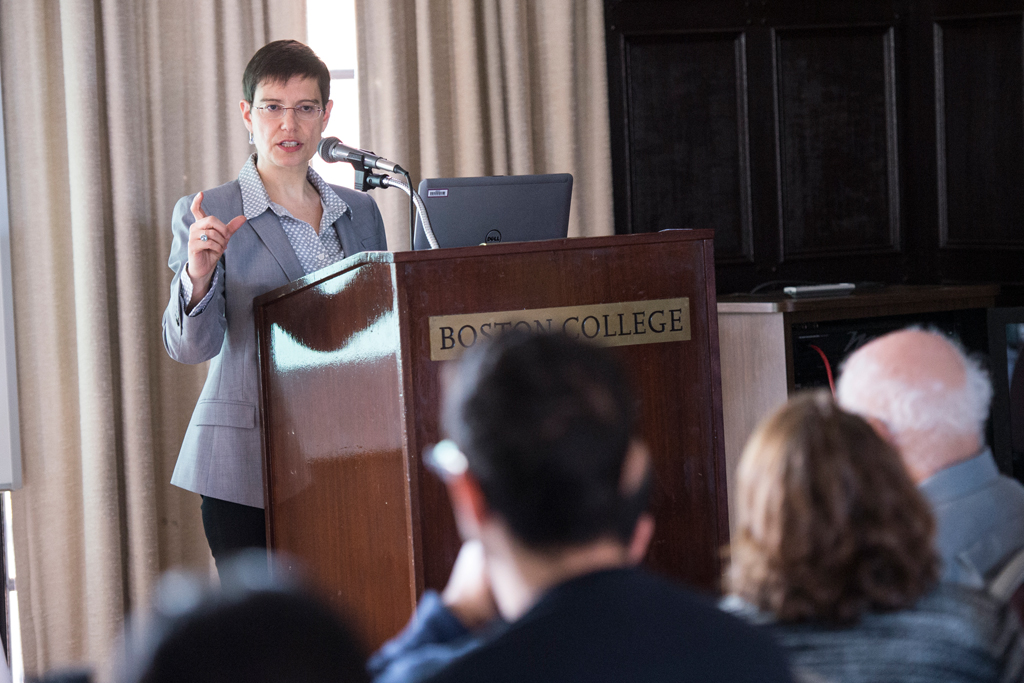Fifteen years ago, at the turn of the 21st century, many held the optimistic view that globalization would soon mean the virtual dissolution of borders, allowing for a legal, humanitarian, and economically viable flow of migrants around the word, said Ayelet Shachar at a Clough Center-sponsored lecture on jurisprudence at BC Law in November. “Today, we are very far away from that vision,” she observed, adding that the dichotomy between “strangers” and “members” of a society is “back with a vengeance.”
Admitting to both bewilderment and frustration at this dramatic turn of events, the Toronto University law professor and director of the Max Planck Institute for the Study of Religious and Ethnic Diversity, argued that the current circumstances create an imperative for lawyers: to find new and innovative ways to grapple with, as the title of her talk put it, “The Selective Re-Bordering of Citizenship and Migration.”
To make her case, Shachar presented examples of states’ proprietary regulatory and policy actions from three perspectives: the territorial, cultural, and economical.
As a result of various changes to America’s immigration laws, for instance, the jurisdiction of frontline immigration personnel now extends 100 miles within US borders. That distance makes it difficult if not impossible for immigrants stepping foot inside the country to be given due process because they’ve entered what is essentially a “constitution-free zone” where border officials aren’t bound by the laws that govern citizens, Shachar said. For its part, Canada is trying to prevent entry into the county altogether. And in Australia, efforts are under way to expand its existing “excision zone” (similar to the United States’ 100-mile zone) to encompass the entire country. “Where the border lies is very important in regard to protections,” Shachar said. “Legally, it’s extremely relevant.”
Because the traditional notions of outsiders’ rights are deteriorating or disappearing in similar ways around the globe, many rights—human rights among them—that were once understood to be universal, said Shachar, “are no longer applicable.”
Compounding the problem are various implicitly exclusionary policies such as those attempted or practiced in The Netherlands, France, and Germany, among others, she said. These include requiring aspiring newcomers to pass difficult, pre-entry, cultural (often language) competency examinations or banning the hijab and burka, the head and body coverings worn by Muslim women.
Mix economics into the equation, Shachar continued, and there emerges the opposite scenario, in which nations grant exemptions to and waive restrictions for a select few: the self-sufficient, highly skilled, and, particularly, specially talented (read: star athletes, scientists, and artists).
These various and conflicting methods of manipulating the rules pertaining to the dispossessed raises a compelling question for anyone in the legal profession, Shachar concluded, challenging the assembled students, scholars, and alumni by asking, “What kind of law are we going to practice?”
(Photograph by Chris Soldt, MTS, BC)


